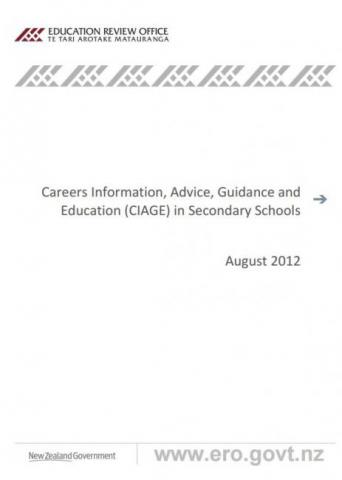Schools' Provision for Gifted and Talented Students
Published: 01 Jun 2018
In 2008 the Education Review Office evaluated schools’ provision for gifted and talented students.
- Audience:
- Education
- Parents
- Schools
- Content type:
- Research
- Topics:
- Gifted and Talented Education (GATE)
- National Administrative Guidelines (NAGs)

















